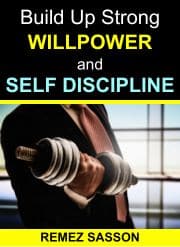
Your grip on the steering wheel becomes tighter. The commute to work is a little lighter than usual, but the travel time is weighing heavily on you this morning.
You’re weighing all of the alternatives of what will happen today at work. If you respond one way, your boss may respond a different way. If you say something wrong, the new clients might walk out the door.
To avoid this, you rehearse every conceivable scenario that may happen so that you can appropriately respond.
Does this sound familiar?
These thoughts, when they happen occasionally, are actually quite normal. It shows that you are trying to place the needs of others before your own because you care about their outcomes as much as your own.
It’s when these thoughts become part of your daily routine in everything that trouble may be looking around the corner.
You don’t have to rehearse to be yourself. You just need to be you, because you’re too good to lose.
Why Do We Judge Ourselves Through the Eyes of Another?
Almost everyone has an internal need to be accepted into a group. We prefer that our groups are based on our personal likes and interests, so people who like ‘Star Wars’ and attend comic cons might not find themselves in the same group of people who spend all of their time training for marathons.
There’s nothing wrong with either group, but we each feel comfortable belonging to one over the other.
To make sure we “get in good” with that preferred group, we use them as a mirror. We dress, act, and talk like our preferred group. We’ll start doing the same activities. It’s all done so that we’ll be judged “worthy” enough to be included.
Why do we go through all of this trouble? There’s three very specific reasons.
- We don’t want to be lonely.
- We want to feel validated about our own system of beliefs, interests, and desires.
- We want to be able to share our experiences with those who we feel will benefit from them.
There’s a funny thing about mirrors that happens though. When they encounter a warm, humid environment, you can’t see clearly any more. That’s what human emotion does to this logical thought process we have to become included.
How Can I Always Be Myself?
Being yourself is a lot like purchasing a fog free mirror that you can use anywhere, but especially during your private moments. Think about it – do you really want someone to take your picture when you first get up on a Monday?
How would others judge you based on how you get ready for work after a long, relaxing weekend? That fog free mirror helps you see your true self at all times.
That’s what being yourself is all about. Instead of trying to wipe the condensation away so that you can get a glimpse of yourself, you can always see your true self quite clearly.
You get to be you at all times, not just in those brief moments. That’s also why so many of us decide to base ourselves off of how others see us. It’s easier to look through the eyes of another than to see one’s true self at times.
Shame Is the #1 Killer of a Positive Self-Image
A wise man once told me this: “Life isn’t about winning or losing. Life is about trying. Trying to do our very best to leave the fewest regrets possible as we leave our footprints in the sand.”
Why are regrets so powerful?
Because they are the foundation of shame. When we feel ashamed for our actions, even if the circumstances of those actions are outside of our control, then we feel like less of a person.
The natural result of feeling inferior is to feel that others are superior.
That’s when we begin to seek the approval of those that we each perceive in a superior role. We feel like if we can get that approval, then we can get rid of that shame. The only problem is that shame almost never truly disappears.
How can we allow ourselves to move on so that we can stop rehearsing to get that approval?
Through forgiveness. A lot of advice centers around forgiving others. The most important person to forgive, however, is yourself. Unfortunately that’s the one person we tend to forgive the least.
Is It Time To Experience the World Through Your Own Eyes?
It’s not always easy to forgive yourself – especially when others may not have forgiven you for actions that you have taken that have brought about guilt and shame. The best things in life aren’t easy to obtain either. If you want to be able to forgive yourself, then follow these steps.
- Let it go. You are not defined by the guilt, shame, or even anger that has consumed you and caused you to lose yourself. Yes – by letting go of these feeling, you will lose part of your self-identity. In return, you gain your older, more positive self-identity once again.
- Understand the situation. The actions that have caused these difficult feelings had to originate from somewhere. When we can get a grasp of why the events happened in the way they did, we can then process the information to stop a second occurrence and this helps each person heal.
- Be accountable. The one reason why we don’t allow forgiveness is that there is this perception that the process to forgive includes removing all accountability from a situation. Be accountable for your actions, accept the natural consequences, and learn from the experience.
It can be safe to protect our true identity and we can find companionship by judging ourselves through the eyes of others, but in the end, the only thing that happens is loneliness, sadness, and regret.
Don’t leave regrets with your footsteps. See yourself in the mirror for who you truly are, be that person, and let everyone come to you instead.
That way, you’ll never have to rehearse to be yourself ever again.
About the Author
Luke Glowacki is an avid fan of meditation and contemplation. He also loves listening to binaural beats and isochronic tones as he believes that they have a positive influence on the brain and help one to achieve their full potential. He hosts a website at meditationbrainwaves.com where he writes about meditation, lucid dreaming, brainwave entrainment, brain waves and a lot more.


